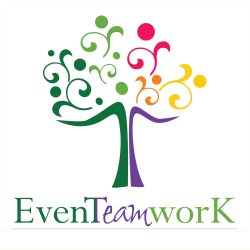When event organisers first approach us, we often hear the following “Can you please provide us with 50 volunteers?” It always makes me cringe. Nobody can be providing people to anyone, let alone volunteers. I think it’s interesting that especially short-term staff and volunteers are often thought of as a commodity.
To clarify, we don’t trade volunteers. We provide a management service that helps event organisers to leverage their volunteer program to achieve positive event outcomes. People volunteer for an organisation because they support the cause or align with their values. How can you outsource your volunteers and expect them to represent your organisation?
From our experience managers who understand the value their volunteers bring to their event and organisations often fear working with an outside management service. It is those organisations that by adopting a more effective volunteer management are able to achieve more positive outcomes.
Why outsourcing your people may hurt your event
Nonetheless there is an interesting trend happening. More and more event organisations are looking for a “done for you” service and do not want anything to do with it.
The underlying problems for this trend are:
- High turnover of short-term staff
- High no-show rates of volunteers
- Volunteers often don’t know what they are doing
- Volunteers often don’t represent the organisation
As organisations struggle with this, the blame often falls to the staff and volunteers and the solution is sought in outsourcing this ‘hassle’ altogether.
This is a short-term fix as it ensures that there are sufficient people at the event to provide the required services. However, from my experience, organisations don’t do themselves a favour by bandaging the problem and outsourcing this important responsibility.
The outcomes can be quite negative. Negative customer feedback can damage the brand and lead to a decrease in fundraising or ticket sales, and difficulties to attract sponsors, staff and volunteers.
Due to the short-term or as I call it ‘cyclic’ thinking, this often becomes the norm of how things are managed each year. As a result organisations cannot see the opportunities available by putting more focus on their people to achieve different and better outcomes.
Re-thinking what to outsource
On the other hand there are hundreds of studies showing a direct relation between staff engagement and productivity. People who are more engaged and looked after in their workplace get more done, stay longer and identify with their organisation. As far as I am aware there are no studies about volunteer engagement being linked to customer service yet, however considering we are working with people, we can assume the same is true for volunteers. If you take away remuneration as an incentive, engagement is even more important for volunteers.
So what does that mean for the future of event organisations?
Well, outsourcing sure has its place but maybe we need to re-think what exactly is being outsourced. Is it the recruitment, the administration, the management or the people?
I believe we can outsource systems, processes and procedures such as recruitment; administration and the entire management but outsourcing the people can do some real damage to your organisation and brand.
This is going to become a lot more relevant as competition for sponsors, funding and customers grows. Often your volunteers are your biggest assets to create the customer experience. It makes sense that you want to ensure they are managed and looked after well. Investing in good management is essential to achieve positive outcomes.
Volunteers also need to identify with your organisation and this can only be achieved by engaging them in your organisation. It seems illogical to give this part away – the part of aligning people with your vision, goals and values. It is the part that makes your organisation unique and standout and will be the determining part in keeping your event organisation sustainable.
If you want to focus on effective volunteer management and need some help, book in for a FREE Volunteer Management Chat with me.




